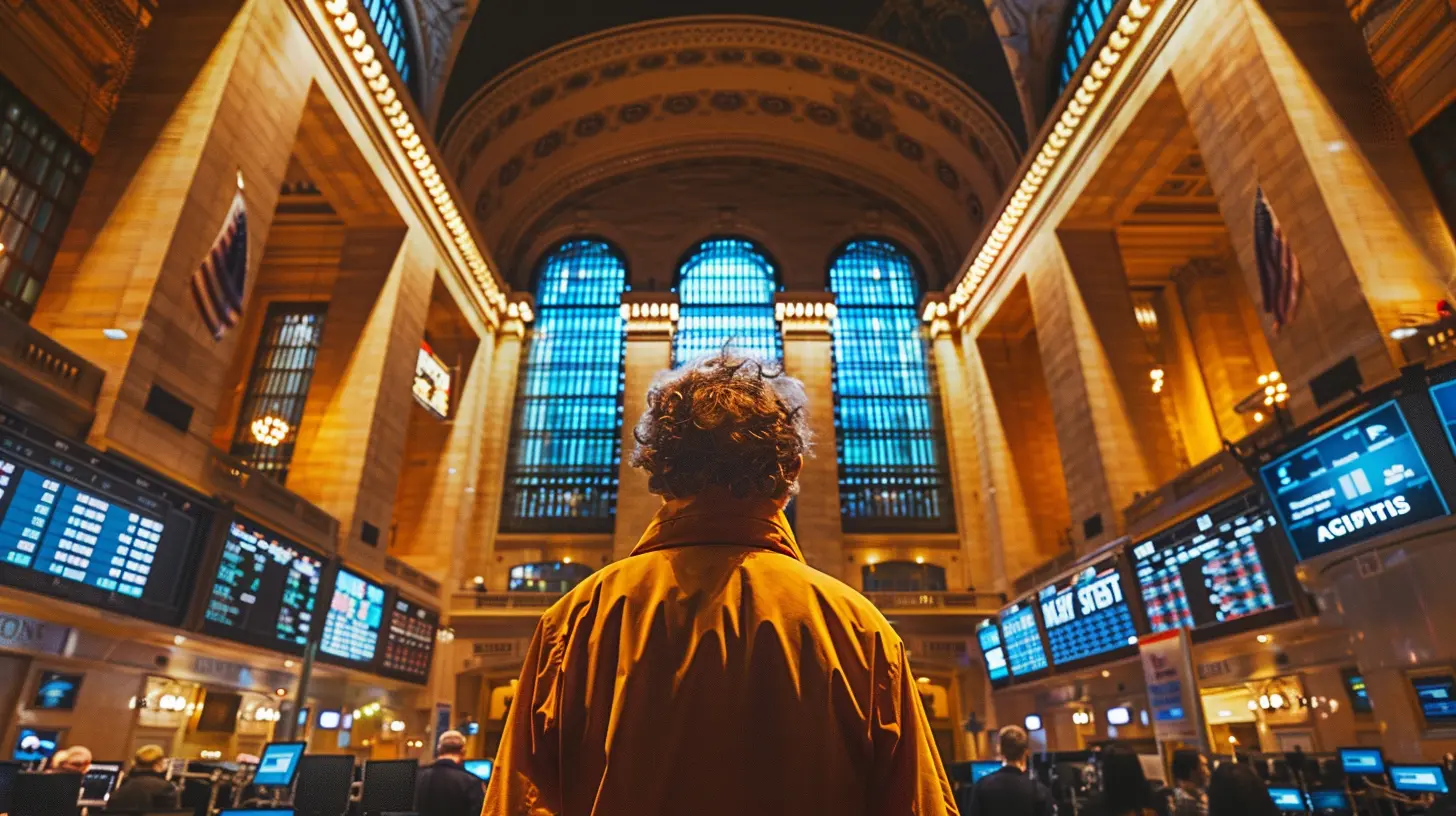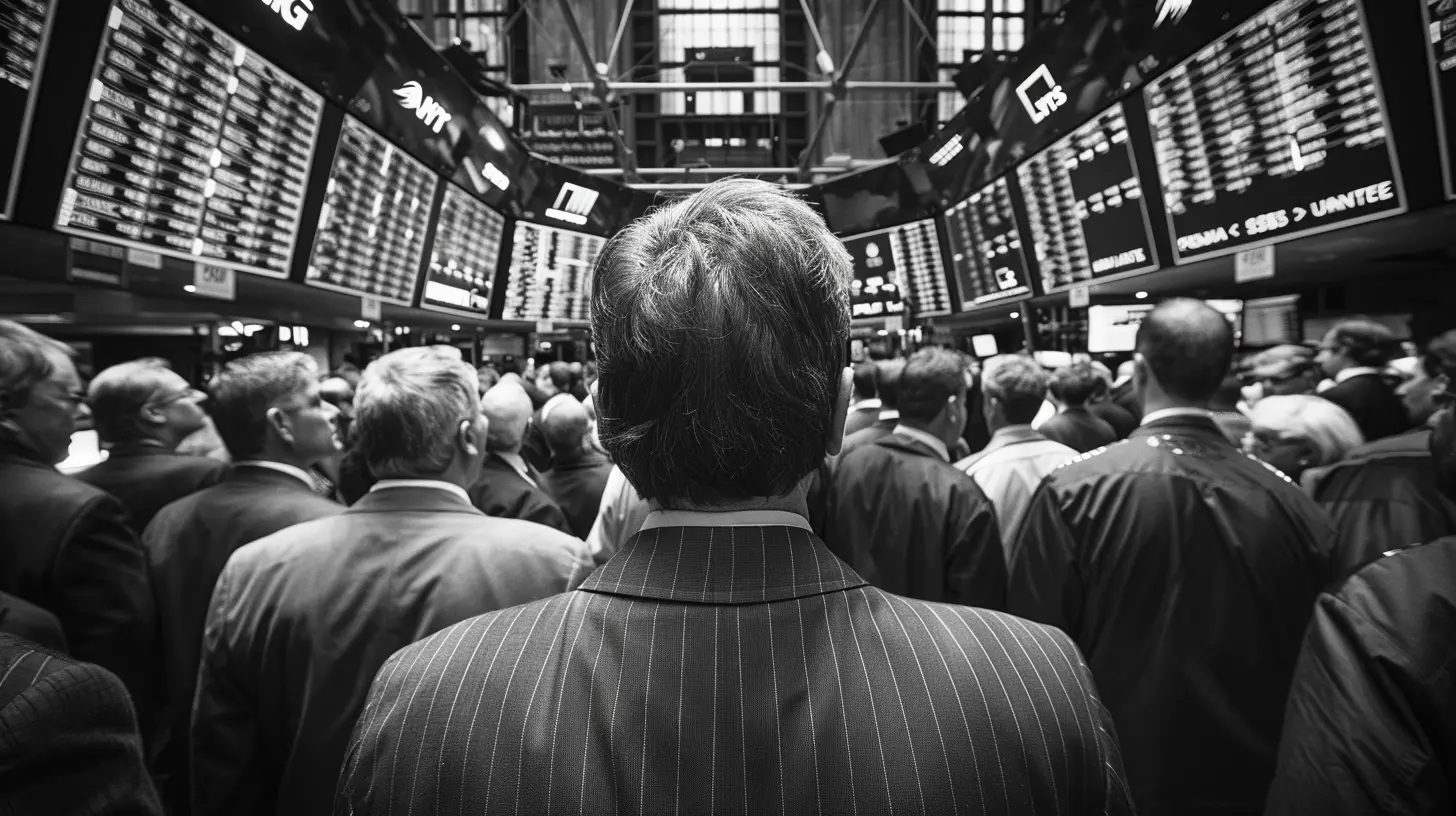How Retail Investors Are Changing Market Dynamics
16 July 2025
Not too long ago, Wall Street insiders and institutional investors had a near-monopoly on the stock market. They had the big bucks, the fancy algorithms, the high-speed connections—and frankly, they called the shots. But lately, something’s changed. You’ve probably noticed it too. Regular people—aka retail investors—are stepping up in a big way and shaking up market dynamics.
If you’re wondering how that happened and what it really means for the financial world, buckle up. We’re breaking it all down in a way that’s easy to grasp, even if you’ve never touched a Bloomberg terminal in your life.
The Rise of the Retail Investor: A Quick Snapshot
Let’s kick things off with a simple question: who is a retail investor?A retail investor is just an individual like you or me, investing our own money in the stock market—usually through brokerage platforms like Robinhood, Fidelity, or E*TRADE. We’re not managing hedge funds or pension portfolios. We’re just investing for ourselves.
Now, what’s mind-blowing is just how much power retail investors have started to gain in recent years. Thanks to easy-to-use trading apps, social media platforms, and zero-commission trading, more and more everyday people are entering the market—and they’re doing it differently than the big guys.
Technology: The Great Equalizer
Let’s be real. If trading was still like it was in the 90s—phones ringing off the hook, brokers yelling across trading floors—most of us wouldn’t be here. But all that changed with tech.Mobile Trading Apps
Today, you can buy or sell a stock with a couple of taps on your phone. Apps like Robinhood, Webull, and SoFi have removed all the old barriers. There are no longer high commissions or complicated interfaces. That simplicity? It's addictive. And for many first-time investors, these user-friendly tools were the key that unlocked the door to Wall Street.Real-Time Information
Twenty years ago, you needed a Bloomberg terminal subscription to stay on top of the market. Now? Twitter, Reddit, YouTube, and TikTok spill market info 24/7.Social platforms have become financial mini-universities. Want to know why Tesla’s stock is pumping? Just scroll through r/WallStreetBets or FinTwit. The information might be chaotic, but it’s raw, fast, and strangely democratic.
Community Is the New Analyst
Let’s talk about something wild: we’ve entered an era where memes can move markets.Remember the GameStop saga? Of course, you do. That was the moment retail investors proved they weren’t just background noise. A bunch of average Joes and Janes, rallying around a short squeeze on an obscure subreddit, took down hedge funds—with nothing more than a shared mission and a whole lot of conviction.
To the Moon: The Power of Collective Action
The GameStop frenzy wasn’t just about making a quick buck. It was about sticking it to the institutional gatekeepers. Suddenly, investing had a narrative. It wasn’t just numbers on a chart—it was us vs. them. That energy is still alive today.Retail communities now play a crucial role in market movements. Whether it’s AMC, Bed Bath & Beyond, or the latest SPAC darling, group sentiment matters more than ever.
The Psychology of Retail Investors
Retail investors don’t play by the same rules. They aren’t limited by decades of tradition or risk-modeling software. That’s both a blessing and a curse.Emotion Drives Action
Institutional investors often rely on data, forecasts, and complex strategies. But retail investors? They buy what they believe in. They go with their gut. They invest in what excites them—EVs, space tech, crypto—you name it.It’s personal. If someone who grew up playing video games sees NVIDIA or AMD popping off, they don’t need a deep-dive whitepaper to get behind it. They already “get” the product.
Long-Term vs. YOLO Trading
Some retail investors are looking to grow wealth over decades. Others are chasing that one moonshot that could flip a $500 investment into a Lambo. And this diversity of intent is what makes retail behavior so unpredictable—and fascinating.Market Volatility: A New Playground
Here’s the truth: retail investors are adding a whole new flavor to market volatility.The “Meme Stock” Phenomenon
When retail investors pile into a stock, they don’t do it quietly. They post screenshots, share options plays, and shout “HODL!” from the digital rooftops. That kind of viral behavior causes rapid price swings, sometimes without any fundamental reason.One tweet, one viral post, and boom—a stock shoots up 50% in a day.
Sure, old-school investors might roll their eyes, but this kind of volatility is now part of the landscape. It’s something institutional players have to account for, whether they like it or not.
Short Squeezes and Beyond
Retail investors now understand institutional tactics like short selling. And they’re using that knowledge as a weapon. When they smell blood (i.e., a vulnerable hedge fund shorting a beloved stock), they pounce.That’s more than engagement—it’s strategic warfare. In this new world, information isn’t just power. It’s ammunition.
What This Means for Institutional Investors
Now, you might be thinking: “Aren’t the big guys still in control?” Well, yes and no.Institutional investors still manage trillions of dollars. They have tools and resources most of us can’t even imagine. But now, they can’t ignore the retail crowd.
Forced Adaptation
Hedge funds are hiring social media analysts. Banks are pouring money into AI tools that track Reddit sentiment. Why? Because ignoring retail chatter is a fast track to getting blindsided.In a way, retail investors are like a school of fish. On their own, they’re small. But together? They can send shockwaves through the financial ocean.
A Shift in Strategy
Institutions are reconsidering short positions, being more transparent, and even engaging directly with online communities. They’re being forced to play defense in areas they previously ruled uncontested.Regulation: Catching Up with the Times
Leave it to regulators to always show up fashionably late. The rise of retail investors has put regulatory bodies like the SEC in a tricky spot.Transparency and Fairness
How do you protect new investors without stifling innovation? That’s the million-dollar question. There’s been talk of policing “market manipulation” on social platforms. But where's the line between manipulation and a bunch of people getting hyped about the same stock?Payment for Order Flow Debate
Many commission-free apps make money by selling your order flow to big market makers (a.k.a. PFOF). It's become a hot-button issue.Some say it’s harmless. Others argue it lets the whales profit off the little guy. The debate is still raging—and regulation is likely coming sooner rather than later.
Cryptocurrency & Decentralized Finance: Retail's Playground
If Wall Street is the old-school private club, crypto is the wild house party down the block that everyone wants to crash.Retail-Led Crypto Adoption
Crypto adoption didn’t start with banks or hedge funds. It started in Reddit forums, Discord servers, and Telegram channels. Retail investors were the first ones on the Bitcoin and Ethereum train.Now? They’re the driving force behind altcoins, NFTs, and the rise of decentralized finance (DeFi).
Future of Market Participation
Crypto is teaching a whole new generation how to trade, how to hold, and how to manage risk (or not). It’s democratizing finance in a very tangible way—and it's not slowing down.The Future of Retail Investing
So, where does this all lead?Well, get used to the idea of the "everyday investor" having a seat at the table.
More Sophistication, More Tools
Retail investors are getting smarter by the day. They’ve moved from ETF-buying to trading SPACs and crypto derivatives. They’re using AI-driven tools, charting software, and algorithmic strategies once reserved for pros.A Permanent Shift
This isn’t a trend. It’s a transformation. Retail investors are no longer just part of the game. They’re changing the rules entirely.Final Thoughts: The Financial Democracy Era
Let’s call it like it is. Retail investors are no longer spectators. They’re participants, creators, and sometimes even instigators of market drama.They’ve proven their power, and they’re not giving it up. Whether they’re driving volatility or demanding transparency, they’re shaping the future of investing in real-time.
If you’re an investor—big or small—it’s time to respect the retail revolution. Because this isn’t just about markets anymore. It’s about access, ownership, and rewriting the rules to include everyone.
all images in this post were generated using AI tools
Category:
Market TrendsAuthor:

Knight Barrett
Discussion
rate this article
2 comments
Remi Davis
Exciting times ahead! Retail investors are shaking things up!
November 23, 2025 at 3:50 AM

Knight Barrett
Absolutely! Retail investors are bringing fresh perspectives and driving innovation in the market. It's a thrilling shift!
Simon McCabe
Great insights! It’s inspiring to see how retail investors are reshaping the market landscape. Their participation not only democratizes finance but also fosters innovation and drives positive change. Excited to see where this trend leads!
July 26, 2025 at 4:23 AM

Knight Barrett
Thank you! I'm glad you found the insights inspiring. It's an exciting time for retail investors and their impact on the market.


